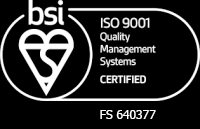When it comes to sales training, learning how to practice the craft is an essential part to being good at your job. It’s about knowing how to respond and listen to people from all walks of life and dealing with a wide range of scenarios.
This is where role-playing comes in. A method of building strong conversational skills, role-playing has an important place in the world of sales training and we’re going to explain how useful it is.
What is sales role-playing?
In the context of a sales training course, role-playing encompasses a broad range of skill building exercises. This includes negotiating, prospecting, presenting and much more.
It involves creating and acting out real-life scenarios where you are tasked with putting these skills into practice to develop resilience and adaptability.
What benefits does role-playing have in sales training courses?
Personal growth and development
When a sales rep engages in a role-play, they are confronted with a situation where they will have to make practical use of their knowledge. For example, the exercise could be to do a mock prospecting call and answer someone’s objections.
By repeating this kind of scenario again and again, the sales rep will be able to develop on a personal and professional level. They’ll become more familiar with how to cope in specific sales situations and become better at their job.
Better adaptability
A key skill in sales is to be able to adapt to different situations and a rep needs to be able to prepare for a call, move beyond gatekeepers, find out who the right person to talk to is and various other tasks.
Role-playing helps to build adaptability through the multiple scenarios that are rehearsed so a rep can be prepared for anything.
A use of valuable time
Role-playing is also useful for sales management training in the context of teaching managers how to assign challenges to staff quickly and effectively. This could also be combined with technology for providing virtual role-plays where sales reps can watch and listen to in their own time.
This ensures everyone is getting the most value out of their time and that specific role-playings can be tailored to the learning needs of different salespeople.
What should be avoided in sales role-playing?
While there are many benefits to role-playing in sales training and sales management courses, it’s important to focus on avoiding certain pitfalls.
Sales training courses that teach valuable role-playing skills will always avoid the following scenarios:
- Role-plays aren’t about berating people or pointing out mistakes. Rather, they should focus on areas that can be improved.
- Role-plays aren’t tests and sales reps shouldn’t be scored on their performance.
- Sales reps should be consistently coached throughout the role-playing process, so they are able to grow at their own pace.
- Role-playing should be structured in a way that has a lasting impact and won’t be seen as a waste of time and company resources.
Tips for how to create successful role-playing exercises
Now that you know what to avoid in role-playing, here are some practical tips for business leaders and sales managers:
Focus on making a situation as real as possible
While a role-play is fictional, you should commit to making the situation as real as possible. Don’t simply ask sales reps to go through the motions of listening and not applying practical knowledge.
Encourage them to practice in front of a mirror. Give them a script to learn and master. Coach them on how to get comfortable listening to recordings of themselves and growing a step at a time.
Create challenging scenarios
There will come a time in every salesperson’s life when they have to deal with a difficult prospect or customer. The sooner they learn how to feel comfortable in this situation, the easier it will be for them to handle objections and find a way to overcome the discomfort.
That’s why it’s worth creating role-plays that deal with these kinds of challenges to help build up your team and push them beyond their comfort zone.
Deliver constructive feedback
At the end of every role-play, provide feedback so a team member has positive reinforcement and knows what they can improve on.
The trick is to find the right balance between showing how someone is making progress and identifying the areas where they could continue to develop.
Learn valuable sales role-playing skills with Brook Consultants
As a leading sales training provider in Leeds and beyond, Brook Consultants is well-positioned to provide role-playing guidance in our sales programmes.
Get in touch with our team today for more information.





